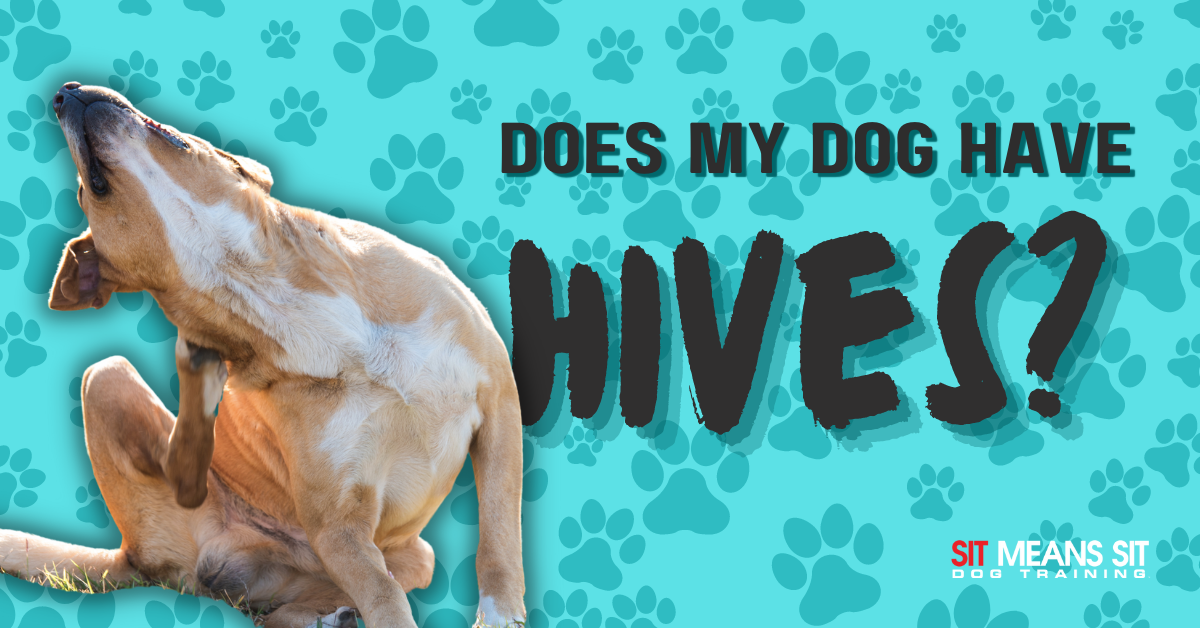
Does My Dog Have Hives?
Hives are a common response to an allergic reaction in dogs. Similar to humans, a dog’s immune system can overreact to an allergen and cause an allergic reaction. Don’t worry, hives in pups are generally not life-threatening. However, it may be needed to seek veterinary attention if they do not resolve.
What Are Hives?
Hives are rashes or welts on the skin that are red and swollen. They are also usually itchy. However, they may not bother your furry friend at all. Additionally, these reactions can form anywhere on your pup. This includes the face, lips, throat, and ears. These rashes and welts usually heal on their own. Hives on your pooch’s skin can be hard to spot because of their dense hair. Rashes and welts can be easier to detect in areas with less hair. If you notice raised tufts of hair, this may indicate the development of raised welts.
Hives develop when there is a localized release of histamine in the skin due to contact with an allergen. Histamines help get allergens out of the body or off the skin. As a result, blood vessels in the area will dilate and then welts and rashes will develop.
Causes
Any sensitivities to allergens that your pup has can cause the development of hives. Some of the most common allergen sensitivities in dogs include:
- insect stings/bites (centipedes, bees, or wasps)
- spider bites
- food allergies or sensitivities
- vaccines
- medications
Other sensitivities causing hives include:
- pollen, mold, dust, and other environmental allergens
- shampoos
- supplements
- plants
- chemical reactions
- genetic abnormalities
Elements that can amplify the hives include:
- sunlight exposure
- friction
- stress
- heat
- exercise
You should identify any triggers of hives on your four-legged friend. This will help you prepare and prevent any future development of hives. Additionally, not identifying and removing exposure to a trigger will cause hives to continue to return and develop.
Symptoms
Symptoms that indicate hives include:
- red and swollen areas on your dog’s body, face, or legs
- swelling around the mouth that can lead to drooling
- excessive scratching
- swelling around the eyes causing the eyes to appear closed
- raised circular bumps on the surface of the skin
If treatment is not given, symptoms can worsen. Additionally, the swelling can cause the throat to close causing the hives to become life-threatening. Swelling on the face or lips could spread to the throat. This can cause an anaphylaxis reaction and make it difficult for your companion to breathe. Also, excessive scratching can make the reaction more severe. Don’t fret, in most cases, hives don’t present a significant threat.
Treatment
Can’t get to the vet until Monday, over the counter Benadryl is commonly used, just contact the vet for the dosage amount. Your vet will most likely prescribe antihistamines or corticosteroids depending on the severity. These medications can dramatically improve the hives within minutes.
There are treatment options that you can administer at home. Firstly, you should remove or minimize the allergen or trigger. This will likely cause the reaction to clear up within 24 to 72 hours. To help the healing process and prevent itching, apply ice or a cold towel to the affected area. You can also soothe the skin by bathing your pooch in cool water. Not only with this relieve the inflammation but irritants will also be washed off of the skin.
Natural itching remedies include:
- chamomile/herbal tea soaks
- apple cider vinegar water spray
- oatmeal bath or paste
- coconut oil
- plain yogurt
Your vet may also recommend topical products or prescriptions that can be administered at home. While most cases can be treated at home, you should always contact your vet because of the possibility for the hives to worsen and spread.
Prevention
The most obvious preventative measure is to remove or avoid the allergen trigger. It can be hard to determine a cause and avoid exposure. Your dog may have allergies that you need to discover. This can include food, flea, or environmental allergies. Once you know and understand triggers, you can better take steps to prevent exposure or reaction.
Though hives can become serious, there is no need to excessively stress. Stay in contact with your vet if you suspect hives or allergies to determine the best course of action and treatment.
